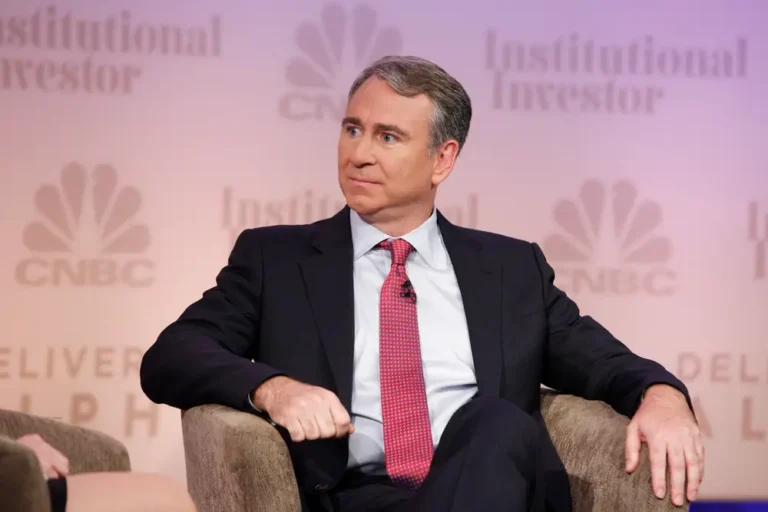Getir emerged as a tentative winner in Europe’s pandemic-fueled rapid-delivery sector. But it still faces sizable threats.

- Getir emerged as a winner in rapid grocery delivery after it acquired its rival Gorillas.
- The Turkish startup, backed by Mubadala and Tiger Global, was valued at $11.8 billion in 2022.
- Now Getir is primed to accept a nearly 80% decline in its valuation.
Nazm Salur invited thousands of Getir employees to a Zoom meeting in March 2022 to celebrate the company’s newfound “decacorn” status.
The Turkish fast-delivery startup had recently been valued at $11.8 billion in a massive funding round led by investors such as the sovereign wealth fund Mubadala and US hedge fund Tiger Global.
According to one former employee who spoke with Insider on the condition of anonymity, Salur, Getir’s cofounder and CEO, saw the $10 billion mark as a significant milestone for the company.
“Nazm came on to make the announcement,” said the former employee. “There was definitely a good vibe on that day.”
Getir, which was founded in 2015, grew from a small business serving its home country to one that spans nine markets and fulfills over one million orders per day. Getir’s purple and yellow mopeds were common in European cities by 2022, and the startup had only recently launched in the United States.
Getir, which had $1.8 billion in venture capital at the time, pursued an aggressive expansion strategy that relied on heavily discounting its offering to win new customers and acquiring smaller competitors such as Blok in Spain and Weezy in London.
Getir is now expected to be worth less than one-quarter of the $11.8 billion price tag that was placed on it at its peak, 18 months after its decacorn coronation.
In April, Insider reported that the company was in talks to raise $500 million in a funding round led by Mubadala. The Financial Times reported earlier this month that the deal would only be worth $2.5 billion.
“All these years, Nazm has been in ‘conquer the world mode,'” a grocery investor in Berlin told Insider, adding that it appeared only Turkey “actually really works” for Getir.
Because the European rapid delivery sector is small, former employees, industry investors, and experts spoke to Insider anonymously to avoid jeopardizing investment or employment opportunities. Insider is aware of their identities.
Getir did not respond to Insider’s requests for comment on this article.
Getir is the latest pandemic star to falter.
Getir had raised funds during a period when investors were eager to pour money into loss-making startups with high growth potential. However, as soaring inflation and rising interest rates began to stymie the tech sector, investors became far less forgiving of companies that had prioritized growth over sustainability.
The Turkish startup is far from the only high-profile startup to plummet from pandemic heights. Fintechs such as Stripe and Klarna have seen their valuations slashed, while Hopin, once Europe’s fastest-growing startup, has become a shell of its former self. Meanwhile, in the United States, the grocery-delivery company Instacart is preparing to go public at a significantly reduced valuation.
Getir began reducing its cost base in order to adapt to the new reality. Getir has laid off thousands of employees since July 2022, with the most recent wave affecting 10% of the company — approximately 2,500 employees.
Getir pulled out of the Spanish, Italian, and Portuguese markets, according to TechCrunch, amid reports that the company’s burn rate was at $100 million per month. It now only operates in Turkey, Germany, the United Kingdom, the United States, and the Netherlands.
Previous employees and industry insiders said the startup’s mistake was not accounting for cultural differences in consumer habits or unit economics as it blitzscaled outside of Turkey.
“When you look at Getir and how they’ve operated, it reminds me of the Adam Neumann type of founder, with the desire to expand to as many different places as possible,” said another grocery investor, referring to WeWork founder Adam Neumann. “The quick-commerce industry has low-single-digit margins, and it requires execution and operational excellence.”
Getir claims that it is profitable in Istanbul, Turkey’s largest city and the company’s largest market, where it also sells water bottles through a separate app called GetirWater. It has struggled to replicate its success outside of its home country.
According to a former employee, many rapid-delivery companies are expected to be loss-making, with poor unit economics — but the goal is to improve unit economics with scale.
Another former employee claimed that money was spent on promotional activities to increase user demand, but that demand was inflated because it was generated by a high volume of promotions.
“They didn’t care how much they spent,” the ex-employee said. “They were terrible with money.”
The Guardian reported in December 2021 that Getir had offered customers a deal in which they could get £15 off if they spent £16. According to one customer, they used the steep discount to get a “roast dinner for a quid.”
Many of the rapid-grocery-delivery startups vying for market dominance used promo codes splashed across public transportation and delivered through mailboxes.
Getir benefited from first-mover advantage
Getir was founded long before the pandemic-induced rapid-grocery bubble. A who’s who of top-tier investors paraded into the sector, which peaked in 2021 with about $5 billion pumped into startups — many of which launched in 2020 — promising to deliver groceries and household goods to customers’ doors in minutes.
In 2021, there were approximately 21 rapid-delivery startups operating across Europe, with Getir joined by the German outfits Gorillas and Flink, as well as the British startup Zapp. By 2023, there are only four major players left in the region, a reflection of declining investor and consumer interest in the industry.
When Getir paid $1.2 billion for its main competitor, Gorillas, in December, it appeared to be the clear winner in the rapid-delivery sector.
Gorillas also had a slew of high-profile backers, including the hedge fund Coatue, the tech behemoth Tencent, and DST Global. The Berlin firm attempted to raise additional funding on its own but chose to accept the deal, which was significantly less than its $3 billion price in 2021.
Even at that drastically reduced price, some Getir employees believed the company had paid too much for Gorillas, according to the German business publication Gründerszene. It also stated that many Gorillas employees had left the enlarged company, with only a few members of the leadership team remaining.
Getir’s Prospects
Despite the looming new funding, experts and former employees who spoke with Insider predicted more market closures for the company.
The Abu Dhabi Growth Fund and Mubadala are expected to lead the new funding round. In January 2020, famed investor Michael Moritz, a backer of Google, LinkedIn, and PayPal, plans to continue his investment in the startup, which he describes as a “Turkish delight.”
Ex-employees were pessimistic about Getir’s future in non-Turkish markets following the latest round of layoffs, with two predicting that those markets would fail in the long run.
According to a person familiar with Getir’s new funding round, a chapter on “excessive growth and excessive capital” has been closed, and the once-thriving rapid-delivery sector has entered a “age of excess,” according to the Financial Times.
One industry stakeholder told Insider that there is some “clear water” emerging between startups that were “sensible and worked hard to attract the right customers” and those that pursued growth at all costs, with the hope of “figuring out how to make the model work in the future.”
“Unfortunately, you can’t postpone the future forever,” this person explained, “and I believe we’re seeing that reality play out quickly.”






